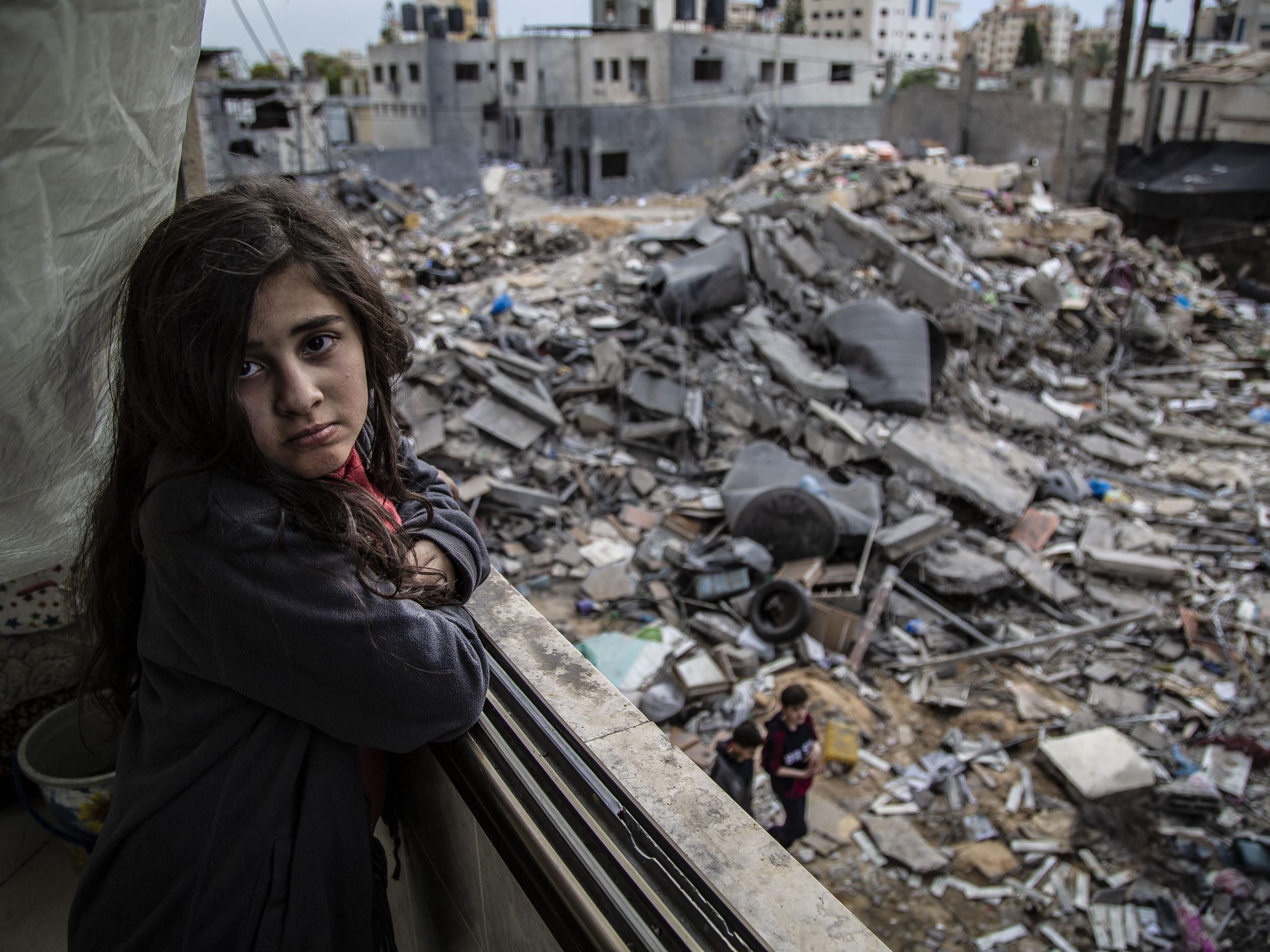A year on, people in Gaza are losing hope in the rallies after endless death and destruction
Right now over half of the 2 million-strong population of Gaza live under the poverty line, homes get fewer than six hours of power a day, over 97 per cent of the water is undrinkable. The list of woes goes on


The Palestinian groom, Walid, was preparing his new marital home for his wedding in a few weeks’ time when the family heard the “knock on the roof”.
An non-explosive missile had made a hole in the top of the block of flats in Gaza where Walid’s sister, Hiba, and her four children live.
Hiba’s 13-year-old son, who has survived three wars already, was the first to hear the warning sign, and knew exactly what that meant: an impending Israeli airstrike.
They had just minutes to get out of the building before a deafening boom and the area was swallowed in a seething ball of flames.
Walid, 26, unemployed like the majority of youth in Gaza, could not afford to pay for his own flat and was only able to marry his fiancée because his sister had cordoned off a part of her home for the new couple.
All that remains of it now is a mound of a greying rubble. A bright blue and yellow plastic children’s car and the gutted remains of a bright red stuffed bear are the sole flicks of colour amid the concrete.
“I’m supposed to get married in just over a week, and now I can’t even think about it. I doubt I will ever be able to provide now,” Walid says from the building next door that is also partially destroyed.
“My sister, her children, are homeless – all five of us are camping here with relatives but we don’t know how long even this building will stand,” he adds.
The block of flats was hit during the latest escalation between Israeli and armed factions in Gaza. Israel said it contained internal security offices used by Hamas, the militant group that runs the enclave.
Israel launched a wave of airstrikes last week after a rocket was fired from Gaza, destroying a family home and injuring seven Israelis, including a baby.
Armed groups within Gaza fired back with a barrage of rockets on southern Israel. Many feared there would be another war.
Whatever was in this particular block of flats where Walid was trying to build a home, there were civilian families living there who are now homeless. And struggling even more than before.
But despite the hardships Walid’s family said they are not participating in the Saturday marches on the border with Israel.
The regular rallies were launched exactly a year ago against the decade-long Israeli blockade that has crippled Gaza economically, and sparked a worsening humanitarian crisis.
Gaza protesters are also demanding the right to return to ancestral lands they were forced from during the conflict which surrounded the creation of Israel in the late 1940s.
Right now over half of the 2 million-strong population of Gaza live under the poverty line, homes get fewer than six hours of power a day, over 97 per cent of the water is undrinkable. The list of woes goes on.
But for Walid’s family the rallies, which have led to the deaths of hundreds of people, are pointless.
Israel has been accused by the United Nations of committing war crimes in their response to the protests. Over 260 Palestinians have been killed and more than 6,000 wounded by live rounds shot by Israeli troops.
The Israeli army has defended its use of force, saying the protesters are violent, use explosives and have tried repeatedly to breach the border fence.
“It has achieved nothing for the people and we see it has caused more damage to people like us, like those who are injured, who lost their limbs. These are not achievements,” Walid’s brother Ahmed says.
Medecins Sans Frontieres warned this week that Gaza’s collapsing health system did not have the capacity to treat everyone and that a “slow motion” emergency was unfurling across the strip.

On Saturday morning, hours before the marches began, 20-year-old Palestinian Mohammed Saad died after being hit in the head with shrapnel caused by Israeli army fire east of Gaza City. Aid agencies and hospitals braced for a bloody day.
“I don’t blame people for going, they are doing it to escape from the harsh reality. There is nothing left to do than throw yourself at the [border] fences,” Walid’s brother adds from the crumbled remains of the family home.
“But to me it is only increasing the sorrow and pain, we are only losing more people, not gaining happiness.
“I would like the marches to be without political factions and parties, with all people participating in love and unity. So we can send a message to the whole world that we need help.”
Join our commenting forum
Join thought-provoking conversations, follow other Independent readers and see their replies
Comments
Bookmark popover
Removed from bookmarks